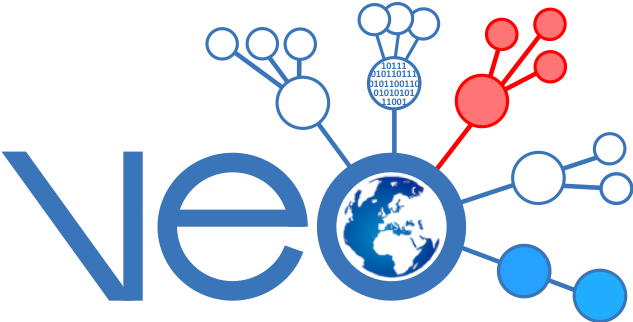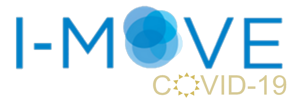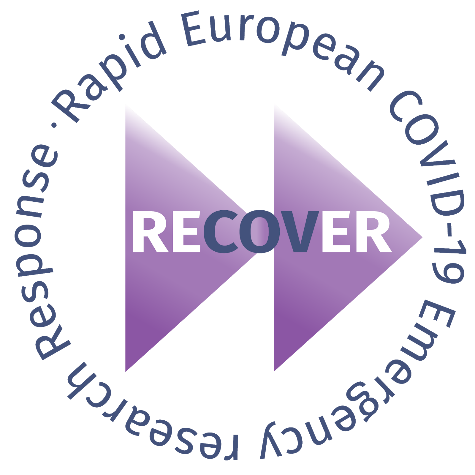Related projects



Read about the excellent work of some of our sibling projects who are also funded under the H2020 programme and focused on responding to the COVID-19 pandemic:
VEO - Versatile Emerging infectious disease Observatory
The Versatile Emerging Infectious Disease Observatory (VEO) is a European research consortium funded through the European Commission’s H2020 programme. VEO runs from 01 January 2020 through 31 December 2024. VEO was awarded 15 million EUR funding under call topic SC1-BHC-13-2019, Mining big data for early detection of infectious disease threats driven by climate change and other factors.
VEO will work from the vision that the detection and prediction of human and animal health threats arising from current and predicted global changes can be revolutionized by shifting from a mostly reactive (single) pathogen targeted surveillance, into a system that supports:
- Prediction, detection and tracking of when and where risk of outbreaks is increasing,
- Follow-up of signals for filling data gaps using sophisticated catch-all methodologies and citizen science for verification and tracking, and
- Translating combined data into intuitive and interactive interpretation and visualisation tools for users.
VEO will establish a versatile emerging infectious diseases forecasting, nowcasting, and tracking system that serves as an interactive virtual observatory for the generation and distribution of high-quality actionable information for evidence-based early warning, risk assessment and monitoring of emerging infectious disease (EID) threats by public health actors and researchers in the One Health domain.
The digital revolution coupled with data science, and the use of breakthrough multi-analyte technologies offers great opportunities for infectious disease detection. Emerging diseases and antimicrobial resistance (AMR) are increasing due to global changes that have a fundamental impact on the dynamics of infectious diseases, challenging the existing global health infrastructure and organization. Rapid identification is essential to reduce the impact and costs of outbreaks. As a major part of EID and AMR come from animals, a true shift in ability to detect would come from deep understanding the factors that drive their emergence, focusing on the complex interplay of environmental and human factors that drive disease dynamics, and using those insights to develop early warning systems.
VEO’s objectives
- To develop and operate the VEO data platform.
- To develop innovative cloud-based collaborative data mining tools.
- To develop novel phenotyping tools and workflows and integrate these into the VEO system.
- To develop novel host exposure assessment tools and workflows and integrate these into the VEO system.
- To test and evaluate the VEO system in five use-case scenarios and define key user requirements for VEO functionalities.
- To develop a common understanding of key data mining needs, options, challenges, and solutions.
- To develop an inventory, analysis and guideline(s) for the ethical, legal and social implications (the ELSI objective) of integrating novel types of data into the VEO core data hubs.
- To provide a suite of analytical tools, storage and data sharing workspace to facilitate the sharing, analysis and re-use of raw and annotated SARS-CoV-2 genomic data.
Visit the VEO website: Home - VEO Europe (veo-europe.eu)
Follow VEO on twitter: @EuropeVeo
I-MOVE-COVID-19
I-MOVE-COVID-19 aims to obtain epidemiological, clinical and virological information about COVID-19 and patients infected with SARS-CoV-2 through primary care and hospital-based surveillance, to conduct studies on risk factors for COVID-19 at primary care level and risk factors for severity among hospitalised COVID-19 patients at hospital level. Studies at both primary care and hospital level measure COVID-19 vaccine effectiveness using a test-negative design (protocols available on the I-MOIVE-COVID-19 website). The consortium has adapted and expanded the existing, long-running, European influenza vaccine effectiveness network (I-MOVE) to include COVID-19. The network includes primary care networks, hospitals, public health institutes, national laboratory reference centres, universities and SME in twelve countries.

Visit the I-MOVE website: I-MOVE-COVID-19 | IMove (imoveflu.org)
HERoS - Health Emergency Response in Interconnected Systems
HERoS is a Horizon 2020 project whose overall objective is to improve the effectiveness and efficiency of the response to the Covid-19 outbreak by generating actionable knowledge in four areas: governance, models in epidemics, medical supply chains, online misinformation.

- Governance. HERoS seeks to understand and model different co-ordination structures and governance arrangements. The goal is to identify bottlenecks; develop procedures for efficient information sharing across countries and hierarchical levels; and to propose policies for improved crisis governance, focusing on responders to public health emergencies.
- Models in epidemics. HERoS models the impact of local policies and human behaviour on the spread of the disease. The aim is to guide public decision making in conditions of deep uncertainty.
- Medical supply chains. HERoS evaluates the impact of cascading effects across global supply chains and provides recommendations to improve management of medical supply chains.
- Online misinformation. HERoS studies the co-spread of online misinformation and fact-checks with the aim of developing a new method to retrieve actionable information from social media in order to detect rumours and misinformation early. Online misinformation. HERoS studies the co-spread of online misinformation and fact-checks with the aim of developing a new method to retrieve actionable information from social media in order to detect rumours and misinformation early.
Visit the HERoS website: www.heros-project.eu
Follow HERoS on Twitter: @HERoS_EU
RECOVER

RECOVER (Rapid European COVID-19 Emergency Research response) is comprehensive research response to the SARS-CoV-2 outbreak addressing the most urgent questions for patient and public health level interventions. The project’s objective is to improve patient care and public health responses to the COVID-19 pandemic through clinical research. In a multidisciplinary and interacting set of research response activities, RECOVER indeed combines (1) clinical studies, (2) clinical biological studies, and (3) epidemiological studies and modelling.
- RECOVER’s clinical studies are analysing the severity of COVID-19 in the form of observational studies taking place in both primary care and hospital sites across Europe. These sites are involved studying the severity of the virus causing COVID-19 in some EU countries, as well as testing new diagnostics for the virus in the winter season of 2020-2021. Through embedded social science research, we are improving our understanding of the experiences of healthcare professionals and patients in relation to the COVID-19 pandemic in order to improve delivery of care. The hospital sites will also be used to test new therapies and supportive treatments with patients with severe symptoms of COVID-19.
- The biological studies are developing the tools needed for the RECOVER clinical studies and are establishing protocols that laboratories involved in RECOVER can use to evaluate biological samples collected from patients with the virus. In addition, the biological studies aim to provide answers on the severity of the virus in humans compared to animal models and investigate how the virus’s genome changes with time.
- As more cases are detected in Europe, European policymakers need to determine which combination of control measures they plan to use in their countries. Having access to accurate information on how the virus spreads helps mitigating its impact on the population. RECOVER therefore studies the transmission features of the virus in Europe by using the data collected from confirmed cases in Europe and with mathematical modelling, simulate the spread under different infection control scenarios, such as quarantine and isolation. This allows different control strategies to be evaluated.
In addition, the adaptive platform trial REMAP-CAP, developed in PREPARE, is now continued in RECOVER. RECOVER and EU-RESPONSE have joined forces to install a common mechanism to ensure a coordinated strategy of the European COVID-19 Adaptive Platform Trials. RECOVER’s studies complement ongoing research in China, addressing key knowledge gaps and patient-cohort questions relevant to the European population.
Visit the RECOVER website: https://www.recover-europe.eu/
Follow RECOVER on Twitter: @RECOVER_EUROPE
CORESMA
The primary main objective of CORESMA is to generate the most needed clinical and epidemiological data required for defining targeted public health measures at national and global level to become effective during this outbreak.
The secondary main objective is to develop and establish tools and methodologies to improve the global public health preparedness for outbreaks emerging in the future. Our approach is innovative in combining unique mHealth technology, multiplex serolomics, state of the art modelling, artificial intelligence and implementation research also applying them to particularly vulnerable countries outside Europe.
The specific objectives are:
-
To capture and provide real-time data through mHealth approaches on spread, transmission and clinical information of COVID-19 infections from Nepal and Côte d'Ivoire, so as to guide risk assessment and targeted interventions in and outside the EU.
-
To measure the sero-prevalence of pre-existing cross or partial immunity against COVID-19 in samples from the general population in Germany and Nepal through multiplex serolomics, in order to estimate susceptibility in different populations.
-
Enhance the first two objectives through respondent driven sampling, comprehensive modelling and artificial intelligence in order to increase efficiency of intervention measures.
-
Improve effectiveness of containment measures in countries particularly vulnerable to the COVID19 epidemic by harnessing concepts of field implementation research, in order to reduce the societal burden of the epidemic for the EU and globally.
Visit the CORESMA website www.coresma.eu
Follow CORESMA on twitter @CoresmaEU
